This section is for paid subscribers only. Our subscription is only $3700/- for one full year.
You get unlimited access to all paid section and features on the website with this subscription.
Subscribe to read full article
This section is for paid subscribers only. Our subscription is only $37/- for one full year.
You get unlimited access to all paid section and features on the website with this subscription.
Not ready for a full subscription?
You can access this article for $2, and have it saved to your account for one year.
- Release Date1953
- GenreDrama
- FormatB-W
- LanguageHindi
- Run Time131 mins
- Length3870.96 meters
- Number of Reels12
- Gauge35 mm
- Censor RatingU
- Censor Certificate NumberU-8626/53-MUM
- Certificate Date08/06/1953
- Shooting LocationCalcutta, Howrah Bridge
For centuries India’s peasants have bent their back in toil and endless grief. This is the story of one such peasant, and of the grief which eats like a canker into his robust and manly soul.
For two years now Sambhu’s fellow-villagers have searched the skies with sleepless eyes, waiting for rain. The land is parched and dry and a listless sorrow hangs ominously in the air.
Suddenly clouds are sighted on the horizon, and a thrill of joy brings the village back to laughter and life.
The entire village runs gaily to the square dancing with joy and bursting into song. It is a song which pulsates with the merry rhythm of the joy-filled clouds and which only Bengal’s lush monsoons could bring to life.
Sambhu too hurries to join in the common rejoicing, pushing his wife happily into the dancing crowd.
But Sambhu’s joy is short-lived.
The rich and powerful Zamindar, on whose lands Sambhu’s forefathers have worked, is persuaded to erect a factory for which he wants Sambhu to part with his land.
But for Sambhu land is the Mother. Land is life.
When agonized Sambhu refuses to oblige the Landlord he is confronted with the age-old threat haunts the Indian peasant: He must pay off his own and his fore-fathers’ debts, or else the Law will take hold of his lands.
Sambhu tries frantically to escape together a handful of money to meet the debts, but is thwarted at every step.
In desperation Sambhu decides to go to Calcutta-The Big City where his peasant Kinsmen, who have never themselves stirred out of their tiny village, tell him with a pathetic faith, the streets are paved with gold and silver coins dazzle you with their abundance. There he will be able to earn enough money to pay off his debts and save his land.
Sambhu wrenches himself away from his land and his wife and accompanied by his young son arrives in the City of Hope.
To the child’s eyes Calcutta is a wondrous new world with its tumultuous noise and busy streets and colourful crowds; with the writing steel of its bridges and its double-decker buses which look like houses moving on wheels; with a hundred new experiences for the eager and fascinated child.
But for Sambhu it turns out to be a bitter trap, a vast monster, cold and sullen and utterly indifferent to those millions of rootless beings who, like him, walk blindly into its jaws.
Shambhu is bewildered and lost. There is no one to offer him a place to rest or a job; no one to whom he can turn for help. He spends the nights huddled on cold pavements, and step by step discovers the vast brotherhood of the homeless and the poor.
The slums of Calcutta, where Sambhu comes to live as a Rickshaw-coolie, swarm with the strangest of creatures. But in each of them Sambhu discovers a warm humanity struggling to keep alive beneath a crushed and battered exterior; in each Sambhu finds a touch of the quiet strength and the dignity of man.
But for all his faith Sambhu is pitted against overwhelming odds.
Struggling to earn a hand-ful of copper coins as a Rickshaw-coolie, he meets with a multitude of bitter experiences and lives through the entire gamut of human emotions: through hope and fortitude and thankfulness for the simple brotherhood he has discovered in common sorrow, to bitter disillusion to a hopeless longing at the thought of the loved ones he has left behind at home, to a blank and utter despair.
Sambhu’s little son is also beginning to realize in his own painful way how deceptive is the lure of the city. He falls in with a gang of pickpockets and petty thieves and only causes further tormenting to blast the life of the son.
Meanwhile, Sambhu’s wife has been waiting patiently for the return of her loved ones, with sorrow and longing eating into her heart as each day passes without news and without hope.
A letter from her distraught child, who can no longer stand the humiliations inflicted on them, brings her to the City.
But the City is her doom.
As she wanders helplessly in the slums searching for Sambhu she falls into the hands of a ‘goonda’. From there the story moves swiftly, and tragedy overwhelms Sambhu with the relentless inevitability of Fate.
The climax comes when Sambhu is sitting one day on the roadside beside his Rickshaw, lonely and crushed. An excited crowd has gathered at the crossing a few yards away. Sambhu watches them with tired, listless eyes. Someone from the crowd, seeing Sambhu’s Rickshaw, hurries to urge him to carry the victim of a car-accident to the Hospital. Sambhu refuses to budge unless he is paid for the job. He has no use left for empty sympathy. Why should he bother about this stranger knocked down on the road?
When Sambhu is persuaded to bring his Rickshaw he discovers to his horror that the stranger dying on the street is-his wife!
Everything that had sustained Sambhu is lost-everything but the companionship and the childlike wisdom of his son in whom he now finds his only solace.
(From the official press booklet)
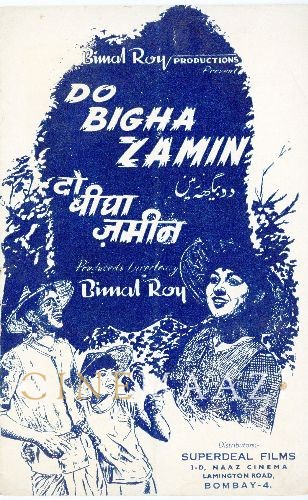
Cast
-
Balraj Sahni
Shambu Maheto -
Nirupa Roy
Parvati (Paro) Maheto -
Ratan Kumar
Kanhaiya Maheto -
Murad
Thakur Harnam Singh -
Nana Palsikar
Dhangu Maheto -
Jagdeep
Laloo Ustad -
Mehmood
Preetam -
Asit Sen (actor)
Savory Seller -
Ramayan Tiwari
Paro's molester -
Nazir Hussain
Rickshaw puller
Crew
-
BannerBimal Roy Prod, Bombay
-
Director
-
Music Director
-
Lyricist
-
Producer & Financier
-
Story Writer
-
Dialogues
-
Cinematography
-
Sound Recording/ Audiography
-
Art Director/Production Design
-
Choreography
-
Make-up
-
Stills






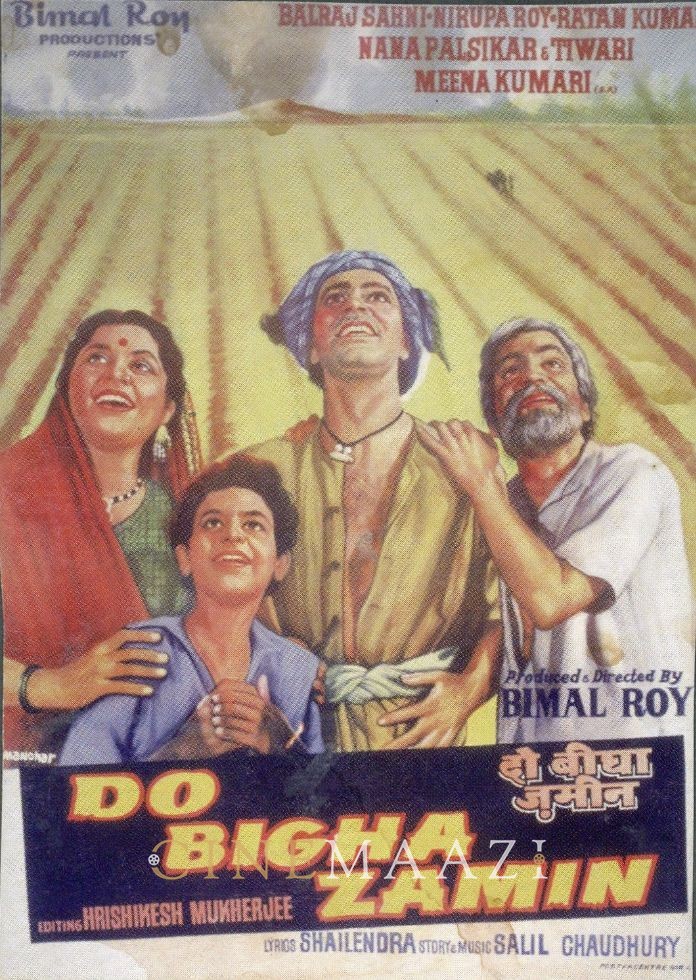

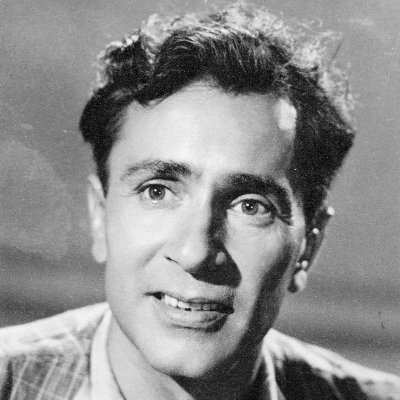


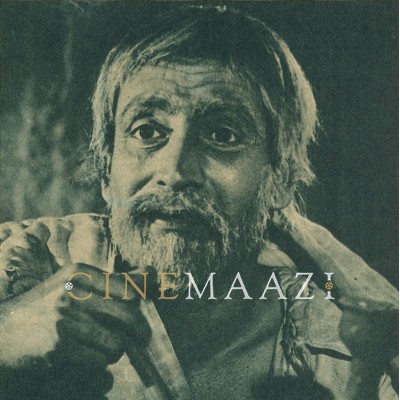
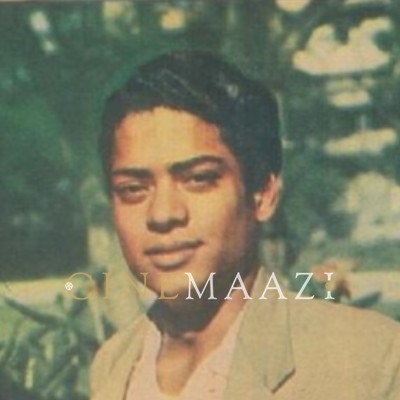
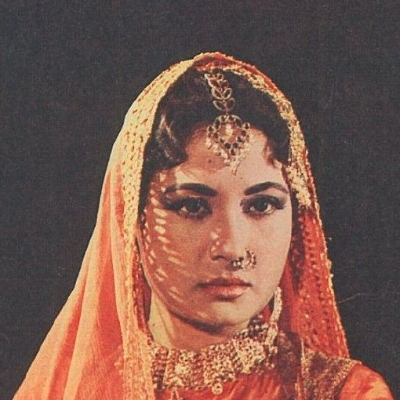

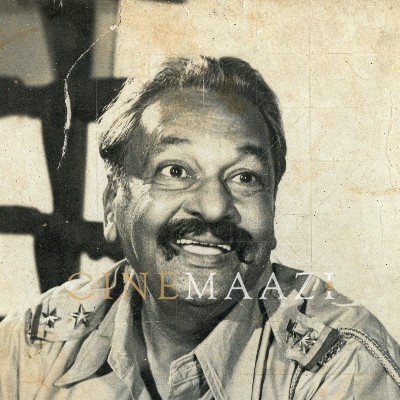
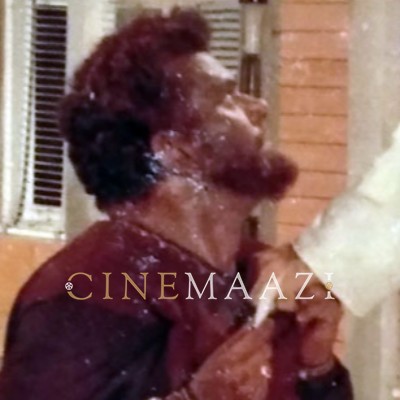
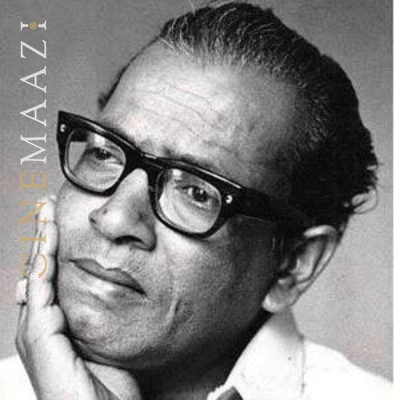
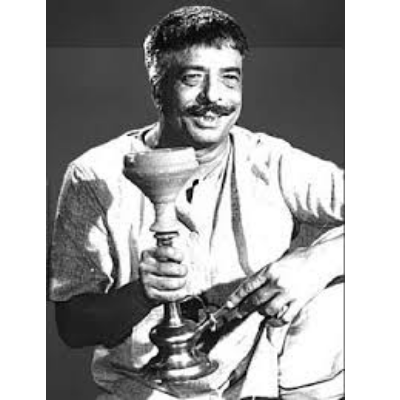

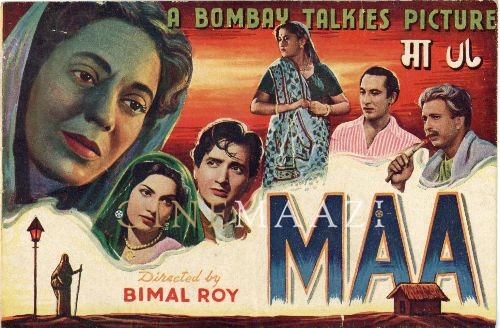

.jpg)



